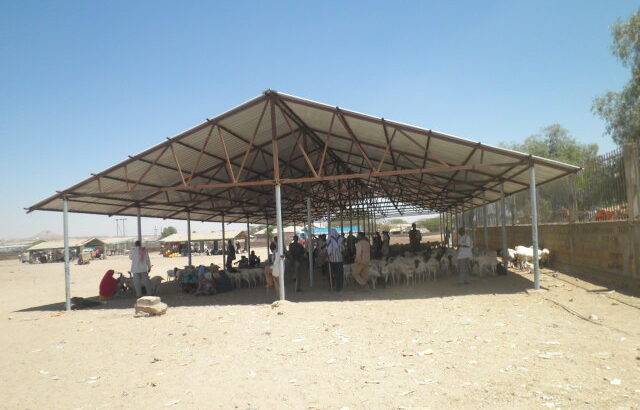ICPALD conducted an awareness creation workshop for traders, border officials, customs officials and border security in the Karamoja cluster, under the IDDRSI IL project, funded by USAID. The 5th August 2020 virtual meeting focused on the policy framework for informal cross border trade (ICBT), cross-border security governance (CBSG) and one-stop border post. The ICBT policy framework seeks to leverage policy and regulatory shifts in ICBT as a viable means to transform the lives of millions of people living in the borderlands of the IGAD region and promote peace and stability in the cross-border areas. It seeks to enhance the integration of the Horn of Africa and simultaneously reduce the incidences of cross-border instability and conflict.
Opening remarks were made by Dr. S. J. M. Munyua, ICPALD Director and Vincent Githinji, on behalf of the Director of Livestock Production, MoALFC. They informed participants that awareness on ICBT and CBSG, for both traders and the public sector, is of paramount importance if the Member States are to convert informal trade into formal trade. Currently, majority of traders engage in informal trade due to inadequate knowledge of what formal trade entails, especially since formal trade is majorly fueled by cartels looking to fleece small-scale traders engaged in cross-border trade. 59 participants comprising border officials, livestock and staple grain traders, customs officials, National Bureau of Standards, Trade Mark East Africa and border security personnel, CEWARN, ICPALD and USAID attended the meeting.
The following recommendations were made:
- IGAD Member States should strengthen border security governance by including local governance structures and relevant community associations to monitor cross-border informal trade on the long, porous borders devoid of government law enforcement institutions.
- Governments should upgrade the one-stop border posts to include human health issues to the pandemic level, in addition to strengthening laboratory-testing capacities according to their respective needs.
- There is need for more awareness creation about the ICBT policy framework with key messages targeting taxable quantities of goods and commodities to mitigate tax evasion by uninformed small-scale traders.
- Grades and standards user agencies and ministries should engage in more dissemination, to mainstream private sector users, to enhance compliance in order to promote inter/intra-regional trade in livestock, staple grains and other goods.
- IGAD Member States should strive to harmonize grades and standards of their trade commodities to promote regional trade as well as exploit the African continental market after the launch of AfCFTA agreement come January, 2021.
- It is important to advocate for more one-stop border posts (OSBP) within IGAD Member States to increase government regulations along their long, porous, unregulated borders to ease movements and promote formal cross-border trade.
- IGAD Member States should develop additional infrastructure such as border markets, water pans, roads, laboratories, fodder banks, holding grounds etc, along their common borders to facilitate increased formal cross-border trade.
- IGAD Member States should work on ways to eliminate non-tariff barriers (NTBs) amongst themselves to promote cross-border trade regionally.
Acknowledgement: ICPALD expresses appreciation to USAID for funding this activity.






